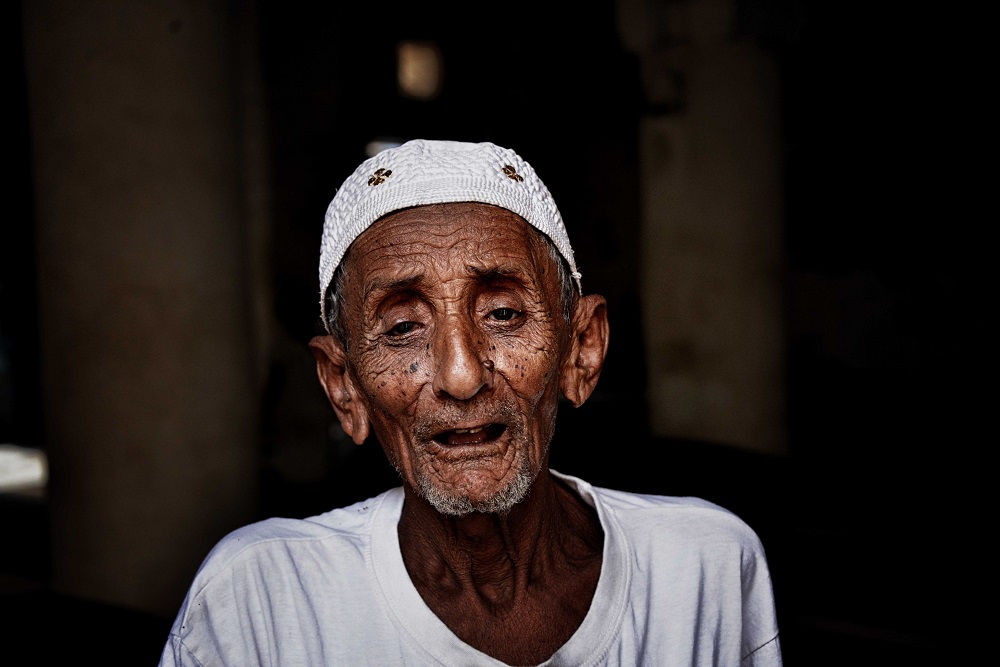
Over the past three years, civil war in Yemen has caused hundreds of thousands of civilian casualties and devastated much of the country. It is now one of the world’s largest humanitarian crises, with 14 million people in Yemen currently depending entirely on aid for their survival.
The scale of the disaster requires urgent action to ensure that all who are affected have their rights to humanitarian assistance and protection upheld. This includes older people, who can be among the most vulnerable during conflicts if the right support is not provided.
We know that older people and people with disabilities are at greater risk of being left behind when fleeing conflict, and that those that do escape are likely to face barriers in accessing information and services. They are often overlooked by government and humanitarian services.
Through a HelpAge International assessment of older people in Yemen’s Hadramout governorate, we have been able to identify these major and urgent challenges:
- 95% of older women and men have no access to any income;
- Just 2% of women and 3% of men can afford much-needed medication;
- 50% of older women and 60% of older men surveyed were unable to access healthcare.
We estimate that 1.65 million older people are at risk and in need of humanitarian assistance. Mark Lowcock, UNOCHA’s Under-Secretary-General for Humanitarian Affairs, has stated that “the immune systems of millions of people are now literally collapsing, making them – especially children and the elderly – more likely to succumb to malnutrition, cholera and other diseases”.
Hospitals have been destroyed or damaged, and conflict has prevented medical supplies, water and food reaching those in need. The UN has reported that people are unable to reach care and are dying at home. Only half of health facilities are functioning and many Yemenis are too poor to access these. Older people with chronic illnesses – who rely on life-saving medication every day – are particularly at risk. For example, insulin medication for diabetes needs to be refrigerated to ensure it is effective, but lack of power means these supplies go to waste even when they are available.
Malnutrition levels among older people are also alarmingly high. Older people’s mobility can prevent them from overcoming barriers to accessing food distribution sites in Yemen. Even if they can reach them, the standard rations available are not suitable for many older people who may struggle to digest them.
World Health Organization figures from 2017 showed that 31% of cholera deaths were older people, despite making up only 5% of the 1.2 million suspected cases. This disproportionate number of deaths can be attributed in part to older people not being able to access humanitarian services, or relying on unsustainable coping mechanisms such as paying others to fetch clean water for them when they are physically unable to do so.
Increases in funding and greater flexibility is needed from humanitarian donors to meet the urgent health, nutrition and protection needs of people in Yemen, especially for those who face additional challenges in accessing aid.
For those agencies able to respond, it is crucial that older people and other vulnerable groups are included in aid assessments, distributions and response activities. Eighty-two per cent of older women we spoke to are entirely dependent on humanitarian aid, but only 21% of them can access it. There needs to be a particular focus on ensuring older women are able to access assistance.
Humanitarian coordination mechanisms and agencies need to ensure tailored solutions are provided to older people and those who depend on them, including children, and there needs to be specific efforts to address the unique challenges faced by older people who have disabilities. This could mean ensuring older people have access to cash assistance, medicines for chronic illnesses, and age-inclusive food rations and distributions, as well as including older women and men in protection initiatives.
A comprehensive political solution that leads to lasting peace in Yemen is critical. Until that time, HelpAge calls on those involved in the conflict and those who influence them to abide by international humanitarian law, ensuring there are no attacks against civilians or crucial infrastructure such as hospitals. We also call for increased, safe and sustained humanitarian access, so that millions of people can get the life-saving support they desperately need.
For more information, contact Madeleine McGivern, Humanitarian Advocacy Adviser.
